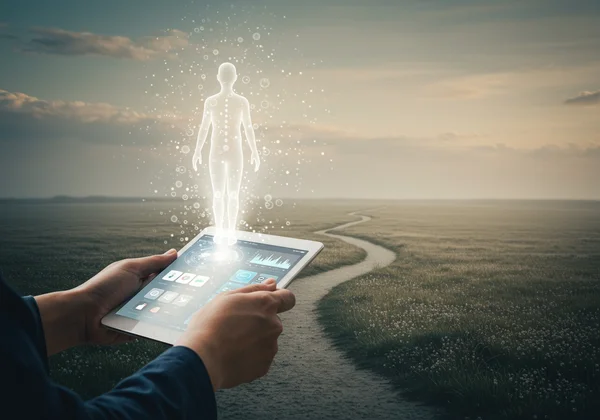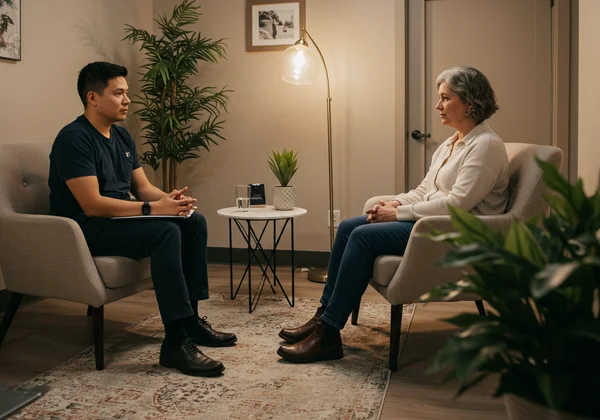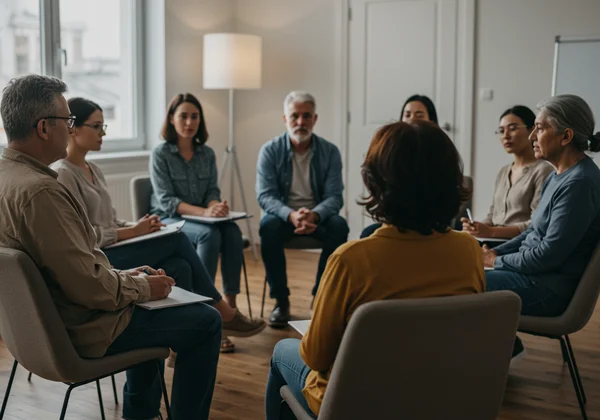Post-Addiction Test: 7 Steps to Get Help & Start Recovery
October 8, 2025 | By Juliana Pace
Receiving the results of an addiction test can be a powerful, and sometimes unsettling, moment. You might feel a mix of validation, anxiety, confusion, or even fear. If you're asking yourself, What are the signs of addiction and what do I do now?, please know this: you have just taken a brave and significant first step toward self-awareness. This guide is here to walk you through the next steps, offering clear, compassionate advice to help you understand your results and begin your journey toward healing. The path forward starts with knowledge, and a great place to start is to take a confidential test to establish a baseline.
Understanding Your Test Results: It's a Starting Point
The score you see on your screen is not a final verdict on your life; it’s a starting point. Think of it as a flashlight that has just illuminated a path you may not have fully seen before. It provides valuable information, but what you do with that information is what truly matters. It’s an opportunity to pause, reflect, and choose your next direction with greater clarity.

What Your Score Means: From Awareness to Action
Whether your results indicate a low, moderate, or high risk, the number itself is secondary to the awareness it brings. A high score isn't a source of shame—it's a strong signal that certain behavioral patterns in your life may be causing harm and deserve your attention. A lower score doesn't mean you should ignore your concerns; it might highlight specific habits that could become problematic if left unchecked. Use this moment not for judgment, but for motivation. Your awareness is the catalyst for action, empowering you to make conscious choices that align with the life you want to live.
Screening, Not Diagnosing: The Purpose of Online Assessments
It is crucial to understand that an online self-assessment tool like those offered on our platform is for screening purposes only. It is designed to help you identify potential risks based on scientifically validated questionnaires. However, it cannot provide a clinical diagnosis. A formal diagnosis can only be made by a qualified healthcare professional, such as a doctor, psychiatrist, or licensed therapist, after a comprehensive evaluation. View your test results as a vital piece of personal data that you can bring to a professional to start a meaningful conversation.
Your First Steps: How to Get Help for Addiction
Recognizing a potential issue is half the battle; the next half is taking gentle, deliberate steps toward support. You don't have to navigate this alone. The journey of a thousand miles begins with a single step, and the first steps toward getting help are often the most courageous.
Breaking the Silence: Talking to a Trusted Person
One of the most powerful initial actions you can take is to share what you're going through with someone you trust. This could be a close friend, a family member, a partner, or a spiritual advisor. Voicing your concerns out loud can lift a significant weight off your shoulders and break the cycle of isolation that often accompanies addictive behaviors. Choose someone who you know will listen without judgment. You don't need them to have all the answers; you just need them to be a compassionate ear.
Exploring Professional Support Options (Therapy, Counseling, Treatment)
Seeking professional guidance is a sign of immense strength. There are many types of support available, and finding the right fit is key.
- Therapists and Counselors: Professionals trained in mental health can help you understand the root causes of your behaviors, develop healthy coping mechanisms, and create a personalized recovery plan. Cognitive Behavioral Therapy (CBT) is often very effective.
- Psychiatrists: Medical doctors who specialize in mental health can diagnose conditions and prescribe medication if it's deemed a helpful part of your treatment.
- Treatment Centers: For more severe issues, inpatient or outpatient treatment programs offer structured support, medical supervision, and a therapeutic community.
Many people begin by simply talking to their primary care doctor, who can provide a referral to a specialist. To better understand your patterns before this conversation, taking a free addiction quiz can provide valuable personal insights.

Navigating Early Addiction Recovery: Practical Guidance
As you begin your first steps in addiction recovery, it's helpful to focus on practical, manageable strategies that build momentum. Recovery is a process of making small, consistent changes over time.
Setting Realistic Goals and Small, Achievable Changes
Trying to change everything at once can be overwhelming and lead to burnout. Instead, focus on setting small, realistic, and measurable goals. If you're dealing with internet addiction, a goal might be to turn off your phone for one hour before bed. If it's alcohol, it might be to have two alcohol-free days this week. Each small victory builds confidence and creates a foundation for sustainable change. Celebrate these successes, no matter how minor they seem.
Building a Supportive Network and Healthy Habits
Recovery thrives in a supportive environment. This means actively building a support system of people who encourage your progress. It also involves replacing old habits with new, healthier ones. If you used to spend hours gaming, try redirecting that time to a new hobby, like hiking, painting, or learning an instrument. If social situations often trigger substance use, suggest activities that don't revolve around it. Exercise, proper nutrition, and adequate sleep are also fundamental pillars of mental and physical well-being that profoundly support the recovery journey.

Continued Support: Resources for Your Journey
Your journey doesn't end after the first few steps. Ongoing support is essential for long-term success. Fortunately, there are countless resources available to help you stay on track.
Online & Local Support Groups (e.g., AA, NA, Al-Anon)
Peer support groups provide a community of individuals who understand exactly what you're going through. Organizations like Alcoholics Anonymous (AA), Narcotics Anonymous (NA), and specialized groups for behavioral addictions (like Sex and Love Addicts Anonymous or Gamblers Anonymous) offer free, confidential meetings both online and in person. Sharing your experiences with others on a similar path can be incredibly validating and a powerful source of encouragement.

National Helplines and Specialized Organizations
If you need immediate support, national helplines are available 24/7. In the United States, the SAMHSA National Helpline (1-800-662-HELP) offers free, confidential treatment referral and information services. Many other countries have similar government-funded health services. These resources can connect you with local treatment facilities, support groups, and community-based organizations, providing a critical lifeline when you need it most.
Your Next Steps: Embracing Your Journey to Well-being
Taking an online addiction test was a courageous act of self-discovery. Your results are not a label but a guidepost, pointing you toward a path of greater well-being. Remember, this is your journey, and you can take it one step at a time. By understanding your results, breaking the silence, seeking professional guidance, and building a network of support, you are taking control of your story. You are not alone, and help is always available. Continue to explore our tests to learn more about your habits and take charge of your personal growth.
Frequently Asked Questions About Addiction and Recovery
Is addiction a mental illness?
Yes, addiction is recognized as a complex brain disorder and a mental illness by major medical associations, including the American Medical Association and the World Health Organization. It is a treatable disease, and recovery is possible with the right support and strategies.
Can addiction truly be "cured"?
Addiction is best understood as a chronic condition, similar to diabetes or heart disease. It cannot be "cured" in the sense that it completely disappears, but it can be successfully managed for a lifetime. The goal of recovery is to achieve remission, where the symptoms are under control, allowing an individual to live a healthy, productive life.
What are the "4 C's" of addiction?
The "4 C's" are a simple way to help identify the signs of addiction:
- Compulsion: The overwhelming urge to use a substance or engage in a behavior.
- Cravings: Intense mental and physical desires for the substance or behavior.
- Consequences: Continuing the behavior despite negative effects on your health, relationships, or career.
- Control: The inability to stop or reduce the behavior, even when you want to. If these signs feel familiar, you can start your assessment now for confidential insights.
What if I'm not ready to seek professional help yet?
That's completely okay. The first step can be self-education. Read books, listen to podcasts, and explore reputable online resources about addiction and recovery. Attending an anonymous online support group can also be a less intimidating way to start. The key is to keep moving forward, even if the steps are small.
How can I support a friend or family member who might have an addiction?
Supporting a loved one is challenging. The best approach is to express your concern from a place of love and non-judgment. Educate yourself about their specific struggle, encourage them to seek professional help without forcing them, and set healthy boundaries to protect your own well-being. Attending support groups for families, like Al-Anon, can also be incredibly helpful.